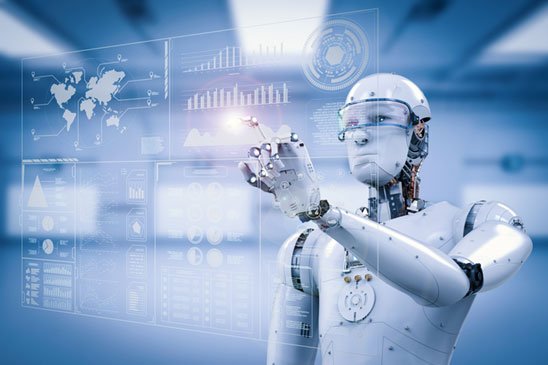Exploring the World of Artificial Intelligence: Real-Life Applications and Future Possibilities
Exploring the World of Artificial Intelligence: Real-Life Applications and Future Possibilities
Artificial Intelligence (AI) is one of the most exciting and rapidly developing technologies in the world today. It is changing the way we live, work, and interact with each other. AI is a field of computer science that focuses on creating intelligent machines that can perform tasks that would normally require human intelligence. These machines can learn, reason, and self-correct. In this blog post, we will explore some real-life applications of AI and its future possibilities.

Real-Life Applications of AI
- Healthcare: AI is revolutionizing the healthcare industry by enabling faster, more accurate diagnoses and treatment plans. AI-powered algorithms can analyze large volumes of medical data to identify patterns and predict outcomes. For example, AI algorithms can predict which patients are at a higher risk of developing certain diseases, such as diabetes or cancer. This information can be used to develop personalized treatment plans and interventions.
- Customer Service: AI-powered chatbots are becoming increasingly popular in customer service. These bots can provide instant responses to customer queries, freeing up human agents to focus on more complex issues. AI-powered chatbots can also analyze customer data to provide personalized recommendations and promotions.
- Finance: AI is transforming the finance industry by enabling better risk assessment and fraud detection. AI-powered algorithms can analyze financial data in real-time to identify suspicious transactions and patterns. This helps financial institutions prevent fraud and mitigate risk.
- Transportation: AI is being used to develop self-driving cars and other autonomous vehicles. These vehicles use sensors and AI algorithms to navigate roads and make decisions in real-time. Self-driving cars have the potential to reduce accidents and traffic congestion, as well as improve the efficiency of transportation systems.
Future Possibilities of AI
- Education: AI has the potential to revolutionize education by providing personalized learning experiences for students. AI-powered algorithms can analyze student data to identify individual learning needs and preferences. This information can be used to develop personalized learning plans and provide targeted interventions.
- Agriculture: AI can be used to improve crop yields and reduce waste in the agriculture industry. AI-powered sensors can monitor crop health and environmental conditions, allowing farmers to make informed decisions about irrigation, fertilization, and pest control.
- Environmental Monitoring: AI can be used to monitor and analyze environmental data to help mitigate the effects of climate change. AI-powered sensors can be used to monitor air and water quality, as well as track changes in the earth’s temperature and climate patterns.
- Personalized Medicine: AI has the potential to revolutionize medicine by enabling personalized treatment plans based on individual genetic data. AI-powered algorithms can analyze genetic data to identify the most effective treatments for individual patients, improving the efficacy of medical interventions.
Conclusion
The applications of AI are vast and varied, and we are only beginning to scratch the surface of its potential. From healthcare to transportation, AI is already changing the way we live and work. In the future, AI has the potential to transform education, agriculture, environmental monitoring, and personalized medicine. As AI continues to evolve and become more sophisticated, the possibilities are endless. The key to unlocking the full potential of AI is collaboration between researchers, engineers, and policymakers, to ensure that AI is developed and deployed in a responsible and ethical manner.
- AI applications in healthcare
- AI chatbots in customer service
- AI risk assessment in finance
- Self-driving cars powered by AI
- Personalized learning with AI in education
- AI in agriculture for improved crop yields
- AI for environmental monitoring and climate change mitigation
- Personalized medicine with AI analysis of genetic data
- Responsible and ethical AI development and deployment
- Future possibilities of AI in various industries
Exploring the World of Artificial Intelligence: Real-Life Applications and Future Possibilities

